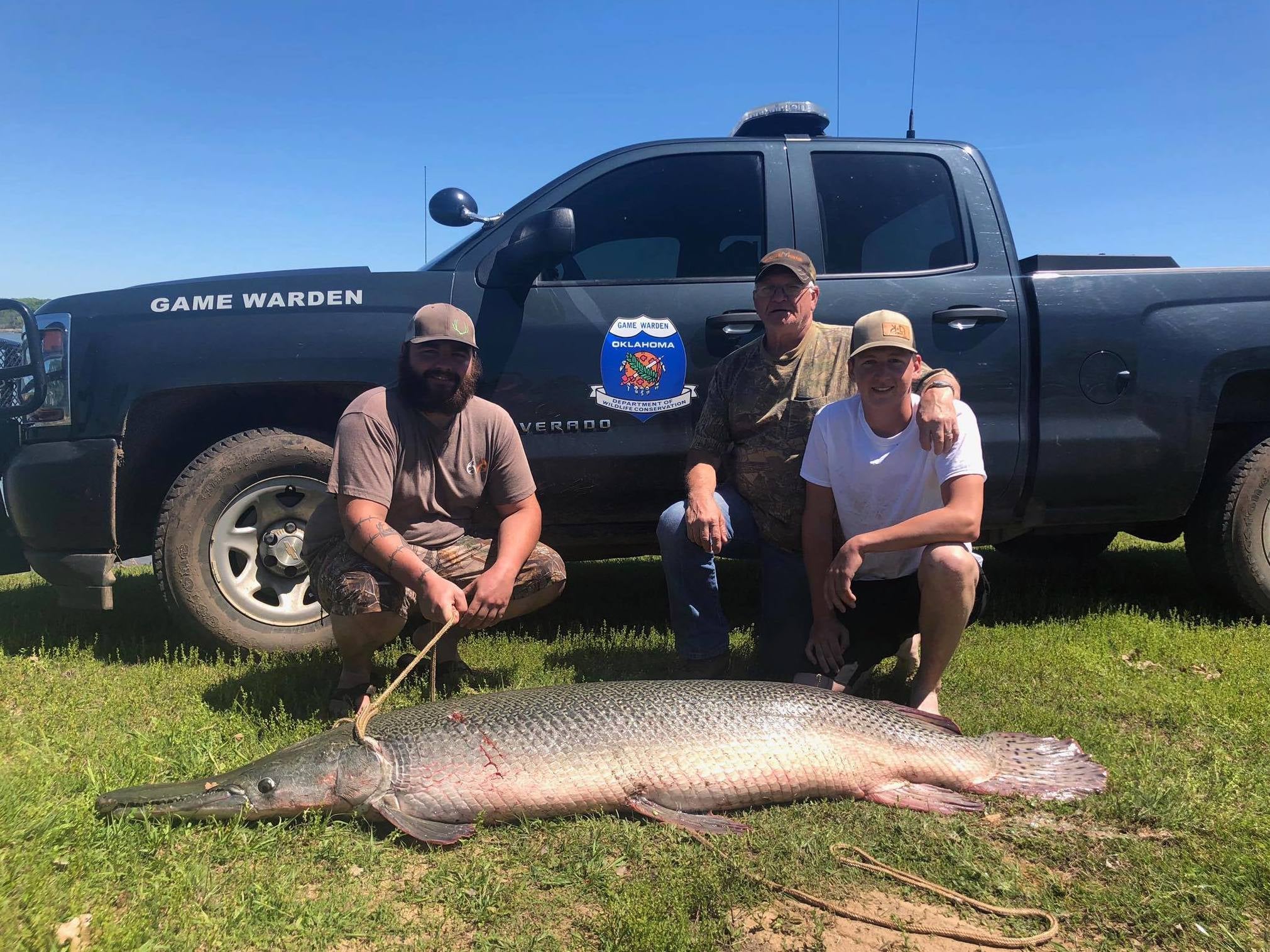‘Prehistoric’ 7ft alligator gar fish caught on US lake
Angler who caught ‘living fossil’ said to pride himself on being a conservationist

An angler “who prides himself on being a conservationist” caught and killed a nearly 7ft long "prehistoric" fish.
The alligator gar, considered a “living fossil”, was so heavy that it took three men to pull it out of the lake in Oklahoma onto their boat.
Largely unchanged in 100 million years, the fish have retained their prehistoric features including scales like armour and an ability to breathe both air and water.
Gar fish are often called living fossils, according to National Geographic.
This species of fish – called an “alligator” because of the shape of its broad snout and long, sharp teeth – can grow to three metres long, and is one of the largest of all freshwater fishes.
Angler Zachary Sutterfield’s catch, weighing 77.1kg, came close to being a record-breaker.
A 126kg giant caught in 1951 in the Rio Grande, Texas, is considered the world record-holder. In 2015, a 115kg alligator gar was caught also in Lake Texoma.
Texas Parks and Wildlife says the ancestors of alligator gar have been found in Permian deposits as fossils from 215 million years ago, “making them not only one of the most ancient fishes, but also truly native Texans”.
“They are the largest and longest-lived freshwater species in our state, with recent catches of fish more than 8 feet long and 60 years old.”
Texas has many healthy populations of alligator gar where fish weighing more than 200lb can be found, officials said.
“Unfortunately, in much of the rest of their native range, alligator gar populations have suffered significant declines.”
Oklahoma Game Wardens posted on Facebook: “This weekend angler Zachary Sutterfield of Durant, OK, harvested this 6’9” approx 170lb alligator gar while bowfishing on Lake Texoma.
“Zachary prides himself in being a conservationist. He allowed ODWC [Oklahoma Department of Wildlife Conservation] biologist Richard Snow to come and gather data from the gar for important research.
“Great fish Zachary!!”
Many users congratulated and admired the angler.
But others said catching it was the opposite of conservation. One said: “How can you be considered a conservationist while killing the most genetically adept or capable of any animals? Isn’t that just messing up the gene pool?”

Join our commenting forum
Join thought-provoking conversations, follow other Independent readers and see their replies
Comments
Bookmark popover
Removed from bookmarks